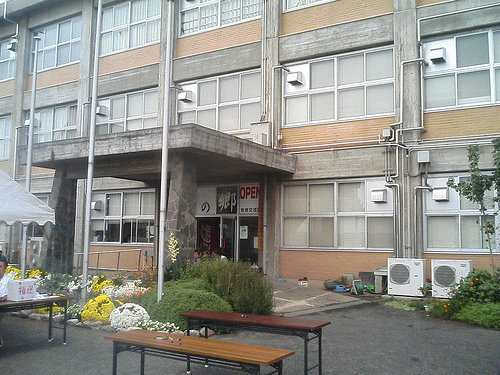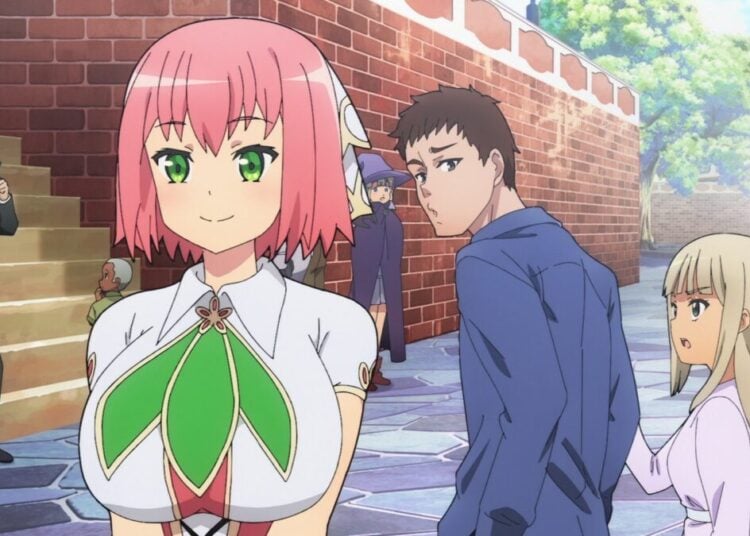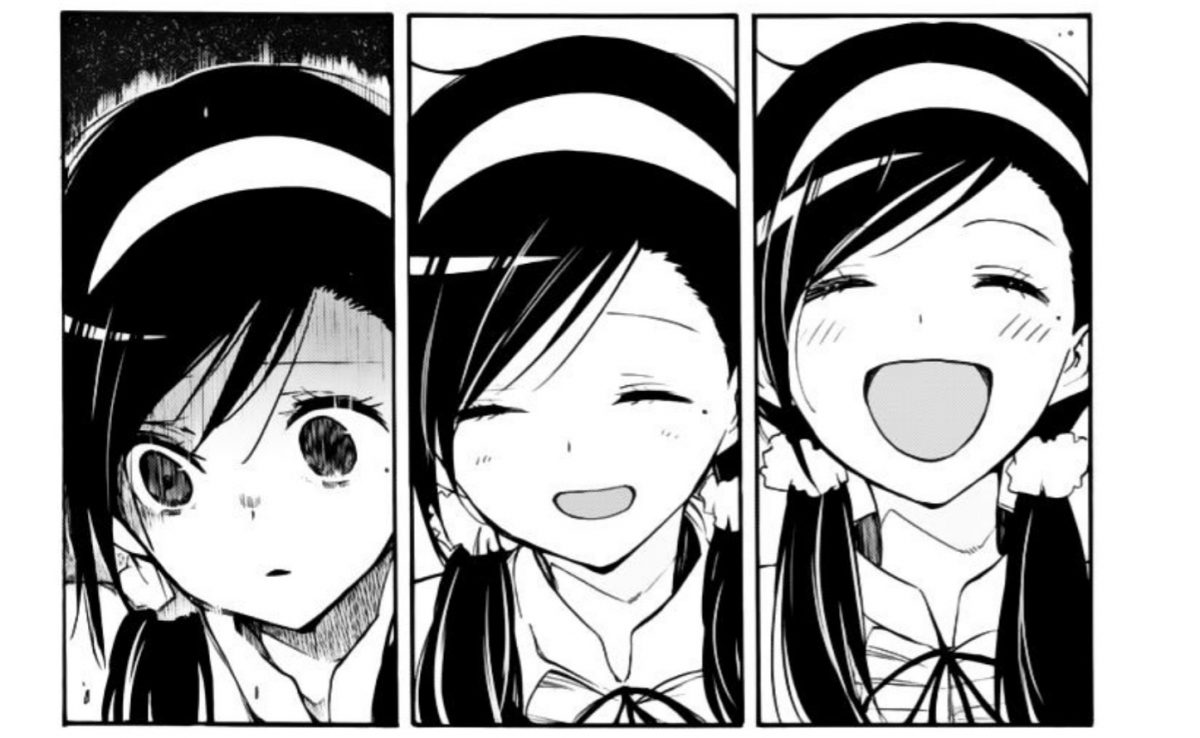J-List is based in a small city in central Japan, about 100 km north of Tokyo, and it has a real down-home feel to it. Yesterday the annual Green Festival was held, an all-day event where residents of our city could gather and engage in what’s locally known as fure-ai (ふれあい, foo-RAY-aa-II). The word literally means “touching each other,” and it calls up images of pleasant interaction with one’s neighbors and getting to know each other a little better — a very nice word (no sexual connotation). At the festival, a dozen groups set up tents with various activities that people could take part in. My daughter is in Girls Scouts, so we sat at their booth helping children make various crafts. Elsewhere, kids hammered away making wooden chairs or tables, learned tea ceremony, practiced outdoor activities with the Cub Scouts and Boy Scouts, ate local foods like yakisoba (the Japanese version of chow mein noodles), and browsed the flea market area (complete with the requisite misspelled sign proclaiming FREE MARKET). There were performances by several local clubs, too, including Japanese taiko drums, a brass band that played anime theme songs (that was pretty interesting to hear) and my favorite, the local Hawaiian Hula Club. It was a fun day of community-building, a regular Amish barn-raising, Japan-style.
At the festival, I was not surprised to attract a lot of attention, as I was the only gaijin present. Everywhere I went I ran into people who knew me, although in a few cases I couldn’t remember who they were or where I’d met them — but I smiled and used the all-purpose Japanese polite phrase, “Domo!” Kids, especially, flocked to me, curious about this strange foreigner who could speak Japanese, and before long I had a good group of Japanese kids trailing me, making me feel like the Pied Piper, or perhaps Jesus on the Mount. It sounds corny, but I’m always careful to present a positive view of America to Japanese children, answering any questions they have and asking what they know about my country. If I find myself around children when I’m wearing sunglasses, I take them off no matter how bright it may be outside. A big foreigner wearing dark sunglasses like a yakuza is likely to be a little scary for Japanese kids, and I’d hate for anyone to get a bad impression of foreigners because of me.
The festival was held in what used to be a local high school, which had been converted into a general-use community center. As Japan’s population contracts, they need fewer schools to support the population of students, and so schools are decommissioned all too frequently. While many schools just sit there as creepy reminders of Japan’s all-too-low low birth rate, this school had become quite useful, with the interior made available for community meetings and clubs and housing various municipal employees. They also turn it into a voting center on election days.
We’ve got a great new category of product for you at J-List: various types of traditional kimonos, which are still worn in a variety of places and situations in Japan. We have silky, stylish kimonos for men, great yukata (cotton kimonos) that can be worn anywhere or used as a bathrobe after a hot bath, and short cotton kimonos called happi (sometimes called “happy coats” for the benefit of foreign visitors) with colorful kanji designs on them. If you order with EMS shipping, you can get these items before October 31st, too (but hurry). See all our new kimono items on the newly renamed Traditional Footwear & Kimono category.
We’ve updated our “top 5” links which appear on the main J-List or JBOX.com pages, increasing the number of top-selling products that display when you click each category link. These links make it easy to browse the best-selling dating-sims, T-shirts, snacks, DVDs, Domo-kun toys, and other items on the J-List site, over the past 7 days. You can also browse all “top” items with the
new link we’ve placed at the bottom of the box. We’ll also be updating the contents every other day, allowing you to browse different categories every time you stop by.
















